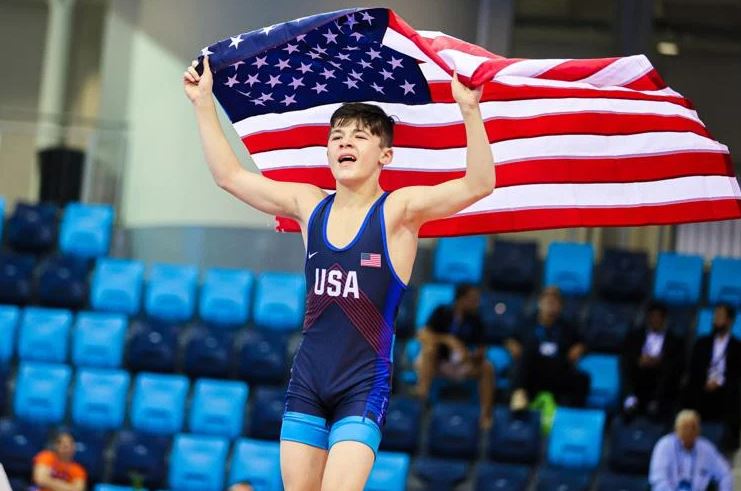Bo Bassett Age and His Father’s Journey Advocating for Empowering Education and School Choice
Education plays a pivotal role in shaping the future of individuals and societies. The quality of education a student receives significantly influences their academic success, personal development, and future opportunities. High-quality schooling provides a robust foundation, fostering critical thinking, creativity, and a lifelong love for learning. Conversely, subpar educational environments can hinder a student’s potential, leading to disengagement and limited prospects.
The debate on school choice has garnered significant attention in recent years. School choice refers to the ability of parents to select the best educational setting for their children, whether it’s a public, private, charter, or homeschooling environment. Proponents argue that school choice promotes competition, improves educational standards, and provides opportunities for students trapped in underperforming schools. Critics, however, contend that it can drain resources from public schools and exacerbate educational inequalities. This debate is crucial as it addresses fundamental questions about equity, access, and the role of public education.
Bill Bassett’s experience with his son, Bo Bassett, provides a compelling narrative within this broader discussion. Although Bo Bassett age is not explicitly mentioned, his academic journey vividly illustrates the impact of educational quality on student engagement. Bo, a student at Bishop McCort, had always excelled academically and thrived on being challenged. However, his previous public school failed to meet his needs, particularly when the Covid-19 pandemic further deteriorated the quality of education. Virtual assignments were insufficient, and Bo, who thrived on in-person learning, quickly became disengaged.
The family faced significant challenges transitioning to a better educational environment. Despite initial financial concerns, they explored Bishop McCort and were impressed by the school’s atmosphere and commitment to academic excellence. With the help of financial aid and scholarships, Bo enrolled at Bishop McCort, reigniting his passion for learning and allowing him to pursue his interests, such as wrestling. This personal story underscores the profound impact of school quality on a student’s life and highlights the potential benefits of school choice.
Section 1: The Struggles with Public School Education
Educational Challenges during the Pandemic
The Covid-19 pandemic brought unprecedented challenges to public education systems worldwide. The sudden shift to remote learning exposed and exacerbated existing weaknesses in public school infrastructure and teaching methodologies. For many students, this transition meant a significant drop in the quality of education they received.
One of the most critical impacts was the abrupt move from in-person to virtual learning. Public schools, often already under-resourced, struggled to provide a seamless online education experience. The lack of proper digital tools and platforms, coupled with limited training for teachers, resulted in a subpar educational environment. Students like Bo Bassett, who thrived in traditional classroom settings, found it difficult to adapt to this new mode of learning. The lack of interaction with teachers and peers, coupled with the monotonous nature of virtual assignments, led to a significant reduction in engagement and enthusiasm for learning.

Bo’s personal experience highlights these inadequacies vividly. Before the pandemic, Bo was a dedicated and enthusiastic student. However, as public schools transitioned to virtual learning, he completed his assignments in just 15 minutes each day, leaving him unchallenged and disengaged. The absence of a stimulating educational environment took a toll on his academic performance and overall interest in school.
Broader Issues in Public Education
The challenges posed by the pandemic only added to the broader systemic issues plaguing public education. Public schools often grapple with inadequate resources, which directly affect the quality of education they can provide. Overcrowded classrooms, outdated materials, and insufficient funding are common problems that undermine the efforts of even the most dedicated teachers.
Class sizes in public schools can be overwhelming, making it difficult for teachers to provide individualized attention and support to each student. This issue is compounded by behavioral problems that arise from a lack of engagement and support. Teachers spend a significant portion of their time managing classroom behavior, leaving less time for actual teaching. This creates an environment where students who need additional help are often left behind.
Bill Bassett, who taught for 12 years in a public school in Johnstown, PA, witnessed these issues firsthand. Johnstown’s public schools, situated in an area with one of the highest poverty levels in the state, faced severe challenges. The high poverty rates contributed to a range of issues, including lack of parental support, limited access to educational resources, and increased behavioral problems among students. These factors created a challenging teaching environment, where valuable classroom time was frequently lost to discipline and managing disruptions.
Despite these challenges, Bill observed that many students in these public schools were eager to learn and had the potential to excel. However, the systemic issues in the public education system often prevented them from reaching their full potential. Bill’s experience highlights a crucial point: the quality of education a student receives should not be determined by their ZIP code or socioeconomic status.
The combination of the pandemic’s impact and the broader systemic issues underscores the urgent need for reform in public education. It also strengthens the case for school choice, which can provide families with the flexibility to choose the best educational environment for their children, ensuring that every student has the opportunity to succeed.
Section 2: Transition to Bishop McCort
Initial Decision-Making Process
The decision to move Bo from his public school to Bishop McCort was not made lightly. Bill Bassett and his family were initially hesitant due to significant financial constraints. Private schooling, with its higher tuition fees, seemed an unattainable dream for the Bassetts, who, like many families, had to carefully manage their budget. However, the deteriorating quality of education Bo was receiving at his public school prompted them to consider alternatives more seriously.

Community recommendations played a pivotal role in the decision-making process. Friends, neighbors, and other parents who had children attending Bishop McCort spoke highly of the school’s academic rigor, supportive environment, and the personal attention students received. Hearing these positive testimonials repeatedly made the Bassetts consider the possibility of enrolling Bo at Bishop McCort. Peer influence, especially from trusted community members, was a crucial factor in overcoming their initial reservations.
Tour and Decision to Enroll
Deciding to explore the option further, the Bassett family arranged a tour of Bishop McCort. The tour proved to be a transformative experience. From the moment they stepped onto the campus, they were impressed by the welcoming atmosphere and the evident commitment to academic excellence. The school’s facilities were well-maintained and conducive to learning, and the staff’s dedication was palpable.
During the tour, the Bassetts were struck by the small class sizes and the personalized attention each student received. Teachers and administrators emphasized their commitment to challenging and supporting each student, ensuring that no one fell through the cracks. This was a stark contrast to Bo’s previous public school experience, where large class sizes and limited resources had hindered his academic growth.
The positive impressions gained from the tour led the Bassetts to seriously consider Bishop McCort despite their financial concerns. They sat down with school administrators to discuss tuition and explore potential financial solutions. The conversation about tuition was initially daunting, confirming their fears that they might not be able to afford the private school education they desired for Bo. However, Bishop McCort’s administration was committed to making their school accessible to families from various financial backgrounds.
The school’s financial aid and scholarship programs provided a ray of hope. The Bassetts applied for financial aid and were pleasantly surprised by the support they received. Through a combination of need-based financial aid and merit-based scholarships, Bishop McCort was able to offer a package that made it feasible for Bo to attend. The school worked closely with the family, understanding their financial limitations and demonstrating a genuine commitment to helping Bo access the education he needed.
This financial support was a game-changer for the Bassetts. Bo’s enrollment at Bishop McCort marked the beginning of a new chapter in his academic journey. The move proved to be beneficial beyond their expectations. Bo’s passion for learning was reignited, and he quickly began to thrive in the supportive and challenging environment that Bishop McCort provided.
In conclusion, the transition to Bishop McCort, facilitated by community recommendations, a positive tour experience, and comprehensive financial aid, highlighted the significant benefits that a supportive and well-resourced educational environment can offer. This experience underscored the importance of making high-quality education accessible to all students, regardless of their financial background, and set the stage for Bo’s remarkable academic and personal growth at Bishop McCort.
Section 3: Positive Outcomes at Bishop McCort
Academic and Personal Growth
The transition to Bishop McCort brought a dramatic change in Bo’s academic and personal life. Once a disengaged student, Bo’s enthusiasm for learning was rekindled. The rigorous academic environment at Bishop McCort, with its smaller class sizes and personalized attention, allowed Bo to thrive. He began to look forward to school each day, eager to tackle new challenges and engage with his teachers and peers.
Bo’s academic performance saw significant improvements. The tailored approach to education at Bishop McCort meant that he was consistently challenged and supported. Teachers who recognized his potential pushed him to excel, providing him with the resources and encouragement he needed. As a result, Bo’s grades improved, and he began to achieve academic milestones that had seemed out of reach in his previous school.

Bo’s personal growth was equally impressive. The supportive community at Bishop McCort fostered a sense of belonging and confidence in him. He developed strong relationships with his teachers and classmates, contributing to a positive and enriching school experience. This nurturing environment helped Bo build self-esteem and develop leadership skills, both inside and outside the classroom.
Support and Opportunities at McCort
One of the most remarkable aspects of Bo’s experience at Bishop McCort was the school’s unwavering support for his extracurricular interests, particularly wrestling. Bo had always been passionate about wrestling, but the limited resources and support at his previous school had hindered his progress. Bishop McCort recognized his talent and provided the necessary support to help him pursue his passion at a higher level.
McCort played a crucial role in Bo’s wrestling career. The school not only offered excellent training facilities but also had dedicated coaches who mentored and guided Bo. These coaches, understanding the balance between academics and athletics, helped Bo manage his time effectively, ensuring he could excel in both areas.
One specific example of McCort’s support was during Bo’s preparation for international competitions. Bo made the USA World team, an extraordinary achievement for someone his age. Competing at the world level required intense preparation and support, both academically and athletically. Bishop McCort facilitated this by providing flexible scheduling and additional academic support, allowing Bo to maintain his studies while preparing for his wrestling competitions.
The school’s encouragement and logistical support extended beyond the local level. When Bo competed in Budapest, Hungary, McCort’s administration and faculty rallied behind him. They provided the moral support and necessary resources to ensure Bo could focus on his training and performance. This support played a pivotal role in Bo becoming the youngest world champion, a testament to his hard work and the backing he received from his school.
Bo’s success story is a shining example of what can be achieved when a student is placed in an environment that nurtures both their academic and extracurricular talents. Bishop McCort’s holistic approach to education, emphasizing both intellectual and personal growth, enabled Bo to reach his full potential.
In summary, Bo’s renewed enthusiasm for learning, significant academic improvements, and remarkable achievements in wrestling illustrate the profound impact that a supportive and well-resourced educational environment can have on a student. Bishop McCort’s commitment to providing comprehensive support and opportunities for its students ensured that Bo could thrive academically and personally, showcasing the transformative power of quality education and dedicated mentorship.
Section 4: The Broader Implications of School Choice
Equity and Access in Education
The debate surrounding school choice centers on the fundamental principle of equity and access in education. Every family should have the opportunity to select the best educational environment for their child, regardless of their financial situation or geographical location. School choice advocates argue that this flexibility is essential to ensuring that all students receive a quality education tailored to their needs and aspirations.
For many families, the dream of enrolling their children in a private or charter school remains out of reach due to financial constraints. The cost of private schooling can be prohibitive, leaving many students stuck in underperforming public schools. These families face a stark reality: despite their best efforts and desires, they are unable to provide their children with the educational opportunities they deserve. This lack of choice perpetuates educational inequalities, as children from lower-income families often attend schools with fewer resources, larger class sizes, and less individualized attention.

The continued struggle in public schools for families who cannot afford private schooling highlights the urgent need for systemic changes. These families often have no other option but to endure the challenges posed by under-resourced public schools. As a result, their children may miss out on the personalized education and extracurricular opportunities that could help them thrive. Ensuring equitable access to various schooling options is crucial for bridging the educational gap and providing all students with the chance to succeed.
Comparative Analysis
The differences between public and private school experiences are stark, as illustrated by personal and professional observations. Bill Bassett’s journey from teaching in a public school to experiencing the private school system through his son Bo’s education provides a unique perspective on these disparities.
In public schools, resources are often stretched thin, resulting in larger class sizes and limited individual attention for students. Teachers, despite their dedication, struggle to manage classrooms with diverse needs and behavioral challenges. The high student-to-teacher ratio can make it difficult to provide personalized support, leading to a one-size-fits-all approach to education. This environment can hinder the academic progress of students who need more tailored instruction or those who thrive on being challenged.
In contrast, private schools like Bishop McCort offer a different educational experience. Smaller class sizes allow for more individualized attention, enabling teachers to cater to the unique needs of each student. The availability of resources and extracurricular programs further enhances the learning environment, providing students with opportunities to explore their interests and develop new skills. Private schools often foster a close-knit community where students feel supported and motivated to excel academically and personally.
The impact of school choice on educational outcomes is significant. When families can choose the best educational setting for their children, students are more likely to find environments that align with their learning styles and interests. This alignment can lead to increased engagement, improved academic performance, and greater overall satisfaction with their educational experience. School choice empowers parents to seek out schools that challenge and support their children, fostering a love for learning and helping them reach their full potential.
In conclusion, the broader implications of school choice extend beyond individual success stories like Bo’s. They underscore the importance of providing equitable access to quality education for all students, regardless of their socioeconomic background. By addressing the financial barriers and systemic challenges that limit educational opportunities, school choice can play a pivotal role in creating a more inclusive and effective education system. Ensuring that every family has the ability to choose the best educational environment for their child is essential for fostering equity and excellence in education.
Section 5: Personal Reflections and Advocacy
Reflections from Bill Bassett
Bill Bassett’s journey from a public school teacher to a private school educator provides a unique and insightful perspective on the differences between the two educational environments. His personal experiences highlight the stark contrasts in resources, student engagement, and overall educational outcomes.
As a public school teacher in Johnstown, PA, Bill witnessed firsthand the numerous challenges that plagued the public education system. Overcrowded classrooms, inadequate resources, and behavioral issues often made it difficult for teachers to provide individualized attention and support to students. The high levels of poverty in the district further exacerbated these problems, as many students lacked the support and stability needed to succeed academically. Despite the best efforts of dedicated teachers, the environment was often not conducive to fostering academic excellence or personal growth.
Transitioning to a private school setting at Bishop McCort, Bill observed a dramatic shift in the quality of education and student outcomes. The smaller class sizes allowed for more personalized instruction, enabling teachers to address the unique needs and learning styles of each student. The availability of resources, including up-to-date materials and extracurricular programs, provided students with a well-rounded education that extended beyond the classroom. The supportive and nurturing environment at Bishop McCort fostered a sense of community and belonging, helping students like Bo thrive both academically and personally.
Advocacy for School Choice
Bill Bassett’s experiences have fueled his passion for school choice and his advocacy for improved educational opportunities for all students. He firmly believes that every family should have the ability to choose the best educational environment for their children, regardless of their financial situation or geographical location. Bill’s journey has shown him the profound impact that a supportive and well-resourced educational environment can have on a student’s life, and he is committed to ensuring that all students have access to such opportunities.
Bill’s advocacy for school choice is rooted in his desire to create a more equitable and effective education system. He calls for systemic changes that support school choice and ensure that families have the financial means to select the best schools for their children. This includes increasing funding for scholarships and financial aid programs, as well as implementing policies that promote school choice and provide families with the flexibility to choose the educational setting that best meets their needs.
Bill’s passion for school choice extends beyond his personal experiences. He has seen the positive impact that private education can have on students like Bo, and he is determined to make these opportunities available to all families. He believes that providing families with the ability to choose the best educational environment for their children can help bridge the educational gap and create a more inclusive and equitable education system.
In conclusion, Bill Bassett’s personal reflections and advocacy for school choice highlight the need for systemic changes to support equitable access to quality education. His journey from a public school teacher to a private school educator has given him a unique perspective on the differences between the two educational environments and their impacts on students. Bill’s passion for school choice is driven by his desire to ensure that all students have the opportunity to succeed and thrive, regardless of their socioeconomic background. By advocating for school choice and supporting policies that promote educational equity, Bill hopes to create a brighter future for all students.
Bo Bassett’s educational journey from a disengaged public school student to a thriving learner at Bishop McCort highlights the transformative power of a supportive and well-resourced educational environment. Although Bo Bassett’s age is not specified in detail, his progress through different educational settings vividly illustrates the impact of quality schooling. Initially struggling with the inadequacies of virtual learning during the pandemic, Bo’s shift to Bishop McCort reignited his passion for learning and led to significant academic and personal growth. The school’s commitment to providing individualized attention and fostering a nurturing community allowed Bo to excel both in his studies and in his wrestling career, ultimately becoming the youngest world champion.
This personal story underscores the critical importance of school choice and equitable access to quality education. Bo’s success at Bishop McCort exemplifies how the ability to choose the right educational setting can unlock a student’s potential and open doors to remarkable opportunities. It also highlights the challenges faced by families who cannot afford private schooling and are left grappling with the limitations of under-resourced public schools.
Bill Bassett envisions a more inclusive and flexible education system where every family has the freedom to select the best educational environment for their child, irrespective of their financial circumstances. His experiences have shown that school choice can lead to significant improvements in educational outcomes and personal development for students.
Expanding school choice has the potential to positively impact countless students and families by providing them with access to high-quality education tailored to their needs. Bill’s advocacy for systemic changes, including increased funding for scholarships and financial aid, aims to bridge the educational gap and ensure that all students have the opportunity to succeed.
In conclusion, the story of Bo Bassett age and the broader implications of school choice emphasize the need for educational equity and the profound difference that access to the right school can make. By fostering a more inclusive and adaptable education system, we can empower every student to reach their full potential and build a brighter future for all.
Age -Navigating the Complexities of Age of Consent Washington State Legal Implications and Consequences
Crip Mac age A Comprehensive Look at the Rapper’s Life and Career
Casey Orr age A Multifaceted Journey Through Metal and Beyond
Understanding the Age of Consent Washington A Comprehensive Guide for Defense Attorneys on Statutory Rape Laws
Shanin Blake Age Revealed Key Details You Should Know
Erica Tokach Age The Inspiring Journey and Impact of the Reiki Fairy
Celebrating Coming of Age Uu Chalice Universalism A Journey of Personal Growth and Community Connection